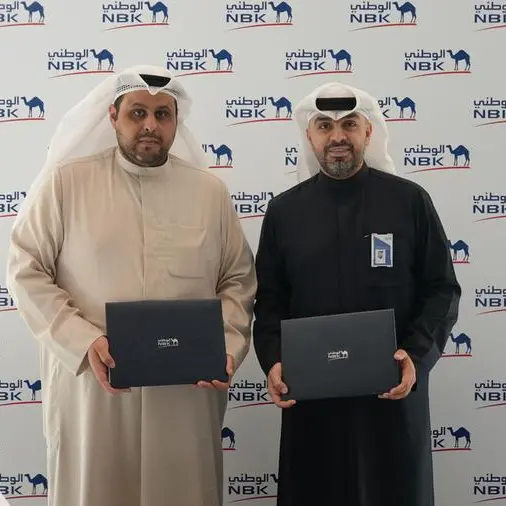Dubai – As many countries around the world emerge from the first shock of the coronavirus pandemic and stay-at-home restrictions slowly lift, many employers in the GCC are quickly learning that returning to the workplace does not equal returning to life as it was pre-pandemic – and that it is actually more complicated than locking down. 77% of organizations across UAE, Saudi Arabia and Kuwait have placed employee health and well-being as a key priority while they undergo changes, while 71% will increase their flexible work options, according to Mercer’s The Shape of Talent report.
While employers look for ways to preserve their employees’ health and well-being, keeping them energized and productive, they will have to balance empathy and economics even in the face of tough decisions. Furthermore, leaders are pivotal in driving this organizational change. 59% of respondents indicate leadership to be a key employee group in need of skilled talent in the coming year, with design thinking/innovation (62%), digital leadership (55%) and change management (54%) as some of the top-ranked skills required. Technology will play a major role in business transformations as the catalyst of cross-geography knowledge sharing; IT departments will need to build global communication and content-sharing infrastructures to enable seamless interactions between employees.
The report highlights that 52% of companies have indicated cost reductions as the primary driver of current transformations. This inscribes itself within a larger desire for agility and efficiency, which will characterize organizational operations well beyond the pandemic. Additionally, 64% of organizations have opted to place a stronger focus on developing and promoting talent from within, as opposed to recruiting externally.
According to Maxime Jallageas, Senior Associate, Talent Management at Mercer Middle East: “Cost-side pressures faced by organizations in the GCC permeate their internal structures. In an effort to eliminate redundancies and to enable efficiency and agility, firms are reevaluating departmental relationships as well as means of communication and lines of authority.” 42% or organizations are planning to move support functions to shared services, 35% to eliminate certain roles/functions and 32% to flatten the organization structure.
Additionally, and accelerated by COVID-19 as well as the need to adapt to the new normal, organizations are becoming aware of the potential of flexible work on both productivity and their bottom lines. 57% believes that in 2021 the work will predominantly be done remotely, compared to 19% in 2020. This can include job sharing, adjusting start and finish times, compressed working week, occasional work from and permanent work from home.
Return to a New Normal
Globally, as the pandemic unfolds in stages, economic recovery will also likely happen in stages, but it is clear that as employers progress on return practices, they will need to continually revisit their relevance for changing times. While each organization faces unique sets of challenges and variations by location, there are distinct issues that are top of mind.
“Organizations faced with a global pandemic of such wide sweeping impact cannot predict what a ‘new normal’ will look like, but they can predict the challenges they might face,” said Martine Ferland, President and CEO, Mercer. “This uncharted territory has pushed employers to consider who should return to the worksite, when and under which conditions; how work gets done digitally; what it takes for employees to be mentally and physically prepared to return to work; and what measures are critical to ensure success in these turbulent times. To be as prepared as possible, it is critical to build a risk mindset, thinking through what protocols and policies as well as what range of reactions employees may have and how to implement necessary changes. Leading companies are taking a fresh look at how best to return, with one eye firmly on how to use this reset as an opportunity to reinvent.”
The ability to adapt quickly will be vital; employers will need to deploy a variety of proven channels for effective communication, while also providing tools and support for managers to accomplish these goals, according to Mercer’s Return to a New Normal.
The near- to medium-term will be a rollercoaster as employers digest the full emotional and economic consequences of the pandemic and anticipate new waves of contagion. Employees will require energy and confidence to thrive – whether back in the workplace, still at home or embarking on assignment. Sustainable organizations are paying attention to make sure progress is not lost in areas such as D&I and pay equity.
About MercerMercer believes in building brighter futures by redefining the world of work, reshaping retirement and investment outcomes, and unlocking real health and well-being. Mercer’s more than 25,000 employees are based in 44 countries and the firm operates in over 130 countries. Mercer is a business of Marsh & McLennan (NYSE: MMC), the world’s leading professional services firm in the areas of risk, strategy and people, with 76,000 colleagues and annual revenue of $17 billion. Through its market-leading businesses including Marsh, Guy Carpenter and Oliver Wyman, Marsh & McLennan helps clients navigate an increasingly dynamic and complex environment. For more information, visit www.mercer.com. Follow Mercer on Twitter @Mercer.
© Press Release 2020
Disclaimer: The contents of this press release was provided from an external third party provider. This website is not responsible for, and does not control, such external content. This content is provided on an “as is” and “as available” basis and has not been edited in any way. Neither this website nor our affiliates guarantee the accuracy of or endorse the views or opinions expressed in this press release.
The press release is provided for informational purposes only. The content does not provide tax, legal or investment advice or opinion regarding the suitability, value or profitability of any particular security, portfolio or investment strategy. Neither this website nor our affiliates shall be liable for any errors or inaccuracies in the content, or for any actions taken by you in reliance thereon. You expressly agree that your use of the information within this article is at your sole risk.
To the fullest extent permitted by applicable law, this website, its parent company, its subsidiaries, its affiliates and the respective shareholders, directors, officers, employees, agents, advertisers, content providers and licensors will not be liable (jointly or severally) to you for any direct, indirect, consequential, special, incidental, punitive or exemplary damages, including without limitation, lost profits, lost savings and lost revenues, whether in negligence, tort, contract or any other theory of liability, even if the parties have been advised of the possibility or could have foreseen any such damages.



















